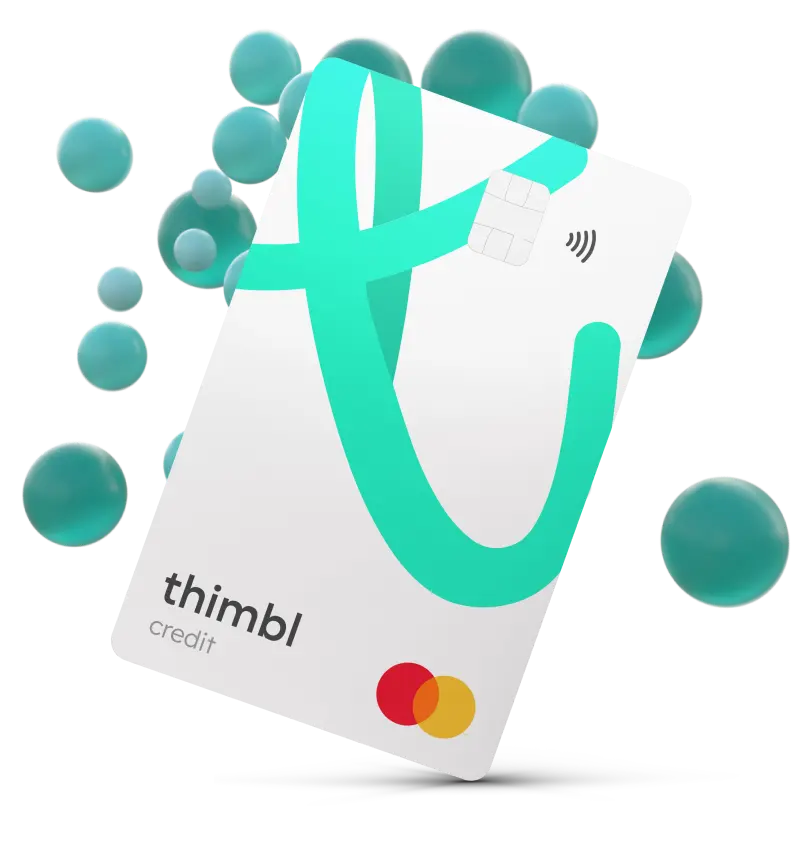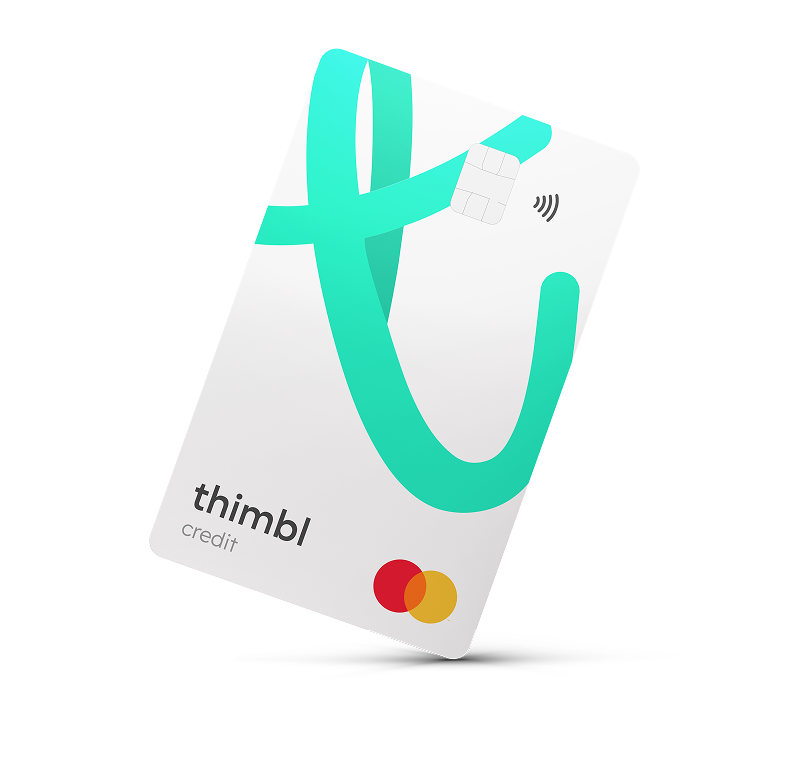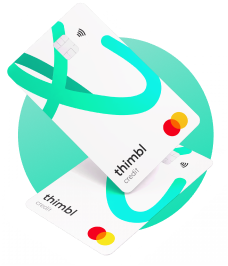Hard Credit Checks Explained
Hard Credit Checks Explained
 Check if you're eligible with no impact to your credit score
Check if you're eligible with no impact to your credit score Personalised credit limit between £200 and £2,000
Personalised credit limit between £200 and £2,00048.9% APR Representative (variable)
Subject to affordability



 For all credit scores
For all credit scores
 Check eligibility with no credit score impact
Check eligibility with no credit score impact


If you’ve thought about searching for a credit product, you might have heard the term ‘hard credit check’.
The thimbl guide to hard credit checks shares the answers to some frequently asked questions, such as:
- What is a hard credit check?
- Will a hard credit check affect my credit score? and
- Is there any way of avoiding a hard credit check?
A hard credit check, also referred to as a hard search, is a type of creditworthiness assessment carried out by responsible providers while assessing your application for credit.
Credit providers will use the information found from a hard search to determine how likely you are to be able to repay the money you borrow. This is called your ‘creditworthiness’ and will be partly based on how you’ve managed any previous credit commitments.
- For all credit levels, from poor to excellent
- Checking won’t affect your credit rating
- 48.9% APR Representative (variable)

When might a hard credit check be carried out?
A hard search could be carried out when you make an application for a credit product, including a mortgage, loan, or credit card. You might also need one for a mobile phone contract or car finance.
What’s the difference between a hard and soft credit check?
A soft search may be used by a credit broker to determine your eligibility for a credit product before you make a full application and will reveal an overview of your financial history. A soft search will only be visible on your credit file to you and the company who carried out the search and will not damage your credit score.
You can read more about soft searches in our guide.
A hard search provides a more in-depth view of your finances and will leave a mark on your credit file. Multiple hard searches within a short period of time could harm your credit score.
What sort of information will a hard credit check show?
A hard credit check will reveal your full credit report, which will include the following information:
- Your personal data, such as your address history.
- Your credit score.
- Whether you’re on the electoral roll.
- Your credit history, including any previous loans or credit cards.
- Any late or defaulted repayments on current or past credit commitments from the last 6 years.
- Any county court judgements (CCJs), individual voluntary arrangements (IVAs), or bankruptcies from the last six years.
- Details of any other hard searches that have been carried out within the last 12 months.
How long will a hard credit check stay on my credit file?
A hard search could be visible on your credit report for up to 12 months.
Will a hard credit check affect my credit score?
Multiple hard searches within a short period of time could have a negative impact on your credit score.
Where possible, you should try to limit the number of hard searches you undergo to minimise the potential damage to your credit score. You could do this by using a credit broker to help you search for a credit product, such as a loan or credit card.
Credit brokers are able to scan their panel of lenders and providers for a product that could be suitable for you, based on the information you’ve provided. This could help to protect your credit file from multiple hard searches.
It’s important to remember that if you’re matched with a credit product through a broker and choose to make a full application directly with the provider or lender, a creditworthiness assessment will be carried out, which could be either a hard credit check or Open Banking.
Can I get credit without a hard credit check?
In the UK, In most cases you will be hard searched as part of your application for credit, although some lenders use Open Banking. All responsible lenders and providers are required to carry out a creditworthiness assessment on anyone who has applied for credit. This is in line with requirements set out by the Financial Conduct Authority (FCA) and applies to all authorised and regulated companies.
A creditworthiness assessment might feel daunting, especially if you lack confidence in your credit score, but it’s important to remember that these checks are in place to protect you. The creditor needs to make sure that you’re able to repay the money that you’re applying to borrow.
What’s Open Banking?
Open Banking is a safe and secure procedure that allows you to share your recent financial information with an authorised and regulated third party, such as a provider or lender. This is typically done through a one-off, read-only view of your online bank account. Open Banking puts you in control; only you can decide who views your account, and you can withdraw your consent at any time. Please note that for these checks, third parties are not permitted to make changes or withdraw money from your account.
Rather than relying on your credit score, Open Banking provides lenders with a different perspective of your financial habits. This method could be used by providers who are willing to consider applications from people who may have poor credit history but whose financial circumstances have recently improved.
How quickly does a hard search show on a credit report?
This will depend on when the lender reports information to the credit reference agencies. You could expect a hard credit check to appear on your credit file anywhere between a couple of days to a few weeks.
I’ve noticed a hard credit check on my credit report that I don’t recognise; what should I do?
In this instance, you should contact the company who carried out the check as soon as possible.
While you should try not to panic, an unauthorised hard search could mean that somebody is using your personal information to apply for credit, which is why it’s important to take action as soon as you notice it.
Where can I get money advice?
You can access free, confidential money and debt management advice through organisations such as StepChange, MoneyHelper, Citizens Advice, and National Debtline.

Page last reviewed: 11th February 2025
Page reviewed by: Alex Kosuth-Phillips
You get all this with thimbl
Tap and go
Quick and easy contactless payments up to £100.
Secure banking app
Manage your credit card online, wherever and whenever you like, with the free mobile app.
A trusted service
Over 4,500 positive reviews from our customers.
48.9% APR Representative (variable)
Quick links








Worried about money?
If you're worried about the cost of living, need support with budgeting, or think you might need debt advice, StepChange could help. They offer free and impartial support and help hundreds of thousands of people every year to deal with their debts and take control of their finances.
To find out how StepChange could help you, take the free Money Health Check. It's quick and easy to complete, and will give you a personalised recommendation on what to do next.
Meet the team
Head of Compliance
Head of Partnerships
Managing Director, thimbl
Marketing Manager, thimbl
Financial Content Writer
Frequently asked
questions
If you've got a question, you may just find the answer you're looking for here. If not, please visit our contact us page and get in touch.
What will my credit limit be?
You will always be made aware of any credit limit changes to any credit cards you have beforehand, and you do not have to accept a credit limit increase if you don't feel it's right for you.
What happens if I fail to make my repayments?
Missed payments will be reported to the credit bureaus, and your account will appear as in arrears. You will be charged a late fee, which is usually around £12. Your credit rating is also likely to decline as a result.
You should try to make your missed payments as soon as possible.
If you're struggling to keep on top of your repayments, you can find free, impartial advice from MoneyHelper, StepChange, Citizens Advice and National Debtline
If you want to know more about how credit cards work, you can read our blog.
Did you find this article helpful?
Let us know how we can be more helpful
Please leave your anonymous feedback to help us keep improving.
Need help or support?
Whether it's a question or you just need support, we're here to help.






